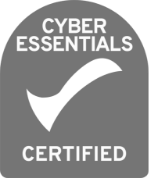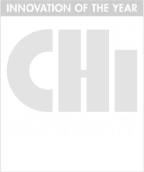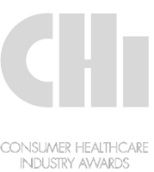The gold standard for assessing the efficacy and safety of medical interventions is randomised controlled trials, or RCTs. They do, however, have inherent constraints that might affect how applicable they are in actual clinical settings. Real-world evidence (RWE) has become a significant source of information that can supplement or replace RCTs in certain settings and help to overcome some of their drawbacks. In this blog, we'll look at how RWE can improve our knowledge of medical therapies in real-world situations while addressing RCT shortcomings.
Truer patient representation
RCTs are frequently carried out in controlled settings with stringent inclusion and exclusion criteria, which could not adequately reflect the variety of patients and clinical practise in real-world situations. Real World Evidence accurately depicts the wide range of patient groups, therapeutic approaches, and clinical outcomes found in real-world settings. RWE research can shed light on how interventions function across a range of patient groups, healthcare and home environments, and real-world settings, improving findings outside the RCT-controlled environment.
Feasibility and Cost-Effectiveness
RCTs require major time and financial input. They are both resource-intensive and time-consuming. They might also experience practical issues such trouble enrolling and keeping participants, drawn out follow-up times, and intricate study protocols. Real-World Evidence studies are more practical and affordable since they can use already-existing data sources such registries, claims databases, and electronic health records (EHRs), as well as gathering retrospective data from patients, minimising the needs for direct intervention. Insights into real-world treatment patterns, outcomes, and safety can be quickly and affordably provided by RWE, which may not be possible through RCTs alone.
Long-term Safety and Effectiveness
RCTs sometimes have brief follow-up intervals, which may not adequately reflect the long-term safety and efficacy of therapies. Real-World Evidence, on the other hand, can offer perceptions into the interventions' safety and long-term effects in the real world, which are crucial for comprehending how well they operate in the real world and maintaining Post-Market Surveillance requirements.
Realistic Patient Information
RCTs frequently follow stringent protocols that might not accurately reflect real-world treatment patterns and adherence. Real World Evidence research, on the other hand, can offer perceptions into real-world treatment patterns, adherence, and results, which are essential for comprehending how interventions are applied and carried out in actual patient usage.
Patient-Centered Outcomes
RCTs frequently concentrate on clinical outcomes, including disease-specific endpoints, which could not fully capture the range of patient-centered outcomes, like quality of life, patient-reported outcomes (PROs), and patient satisfaction. Studies based on Real World Evidence can record patient-centered results that matter to patients and represent their actual experiences. RWE can shed light on how interventions affect patients' day-to-day activities, treatment preferences, and satisfaction.
Underrepresented Populations and Subgroups
Patients with rare diseases, elderly adults, pregnant women, patients with restrictions that do not allow them to travel or spend time in in-person settings, or patients with comorbidities are just a few examples of rare populations or subgroups of patients that RCTs may have trouble obtaining data on. RWE research can shed light on how interventions operate in these populations in the real world, which may be difficult to investigate in RCTs due to restrictions on sample size, inclusion and exclusion criteria, and ethical considerations. RWE can fill the knowledge gaps for these underrepresented populations by supplying important evidence that will help direct clinical practise and guide treatment choices.
Real-world Safety Signals
RCTs are made to assess the safety of therapies in regulated settings, but they might miss some real-world safety signals that could occur in clinical practise. Large and diverse patient populations can be used in RWE studies to gather real-world safety data, which can be used to analyse the safety profile of therapies in practical contexts. RWE can be useful for post-marketing surveillance, risk management, and patient safety by assisting in the identification of safety signals, adverse events, and possible dangers related to interventions.
Conclusion
The foundation of evidence-based medicine has traditionally been RCTs, however they have intrinsic flaws that may restrict their applicability, viability, and usefulness in actual clinical settings. Real World Evidence has grown to be a significant data source that can supplement or replace RCTs in certain settings and alleviate some of these drawbacks. RWE research can help us better understand interventions in real-world settings by offering insights on real-world treatment patterns, results, safety, cost-effectiveness, and patient-centered care.
In conclusion, RWE is an important tool for resolving RCT's shortcomings and improving our comprehension of interventions in real-world contexts. We may create a more comprehensive and rigorous evidence foundation for directing clinical practise, informing health policy, and improving patient outcomes by combining the advantages of RCTs with RWE. RWE is anticipated to play a bigger part in influencing evidence-based medicine and advancing patient care as the field of healthcare research develops.










